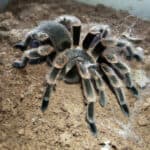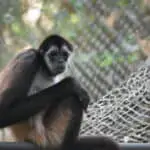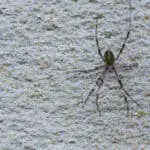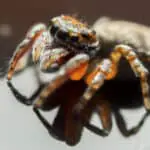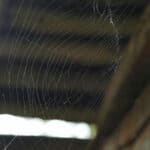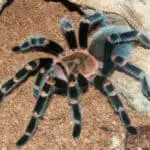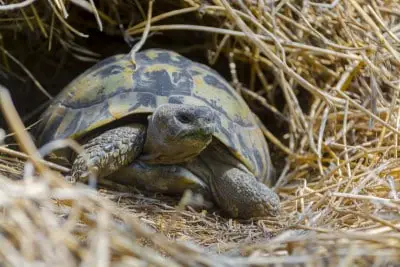Deciding whether to neuter a cat is a complex and often emotional decision for many pet owners. It’s a topic shrouded in various beliefs, concerns, and misconceptions, leading to diverse viewpoints and practices.
From concerns about natural behavior and breeding intentions to cultural influences and personal convictions, the reasons are as varied as the cats themselves. In this exploration, we delve into the multifaceted reasons behind the choice not to neuter, shedding light on the intricacies of this decision.
Understanding these perspectives is key to fostering a more informed and empathetic dialogue about responsible cat ownership.

Natural Behavior Preservation
In the world of cat ownership, the debate about neutering often centers around preserving natural behavior. This perspective holds that cats, majestic and mysterious, should live as nature intended, with their full hormonal balance intact. It’s a viewpoint grounded in the desire to witness the raw, unfiltered essence of feline existence.
There’s a belief that neutering, by altering hormonal levels, can diminish these instinctual behaviors. The concern is that it might strip away some of the vibrant personality traits that make each cat unique.
Observing behaviors like stalking, pouncing, and even certain social interactions, we often see a reflection of their wild counterparts. It’s a narrative that celebrates the primal and untouched aspects of their nature.
Breeding Intentions

In the diverse world of cat ownership, breeding intentions stand as a significant reason why some choose not to neuter their feline companions. This decision often stems from a deep appreciation for the beauty, lineage, and unique characteristics of certain cat breeds.
Breeding isn’t just about producing kittens; it’s about preserving the genetic traits that make each breed special. Sophia’s involvement in breeding is a journey of passion, where each litter is a new chapter in the story of the breed’s legacy.
Responsible breeding involves more than just allowing cats to reproduce. It’s a thoughtful process of selecting mates based on health, temperament, and adherence to breed standards.
This meticulous approach ensures the well-being of both the parents and the offspring, contributing to the overall health and diversity of the breed.
Health Concerns
Health concerns are a pivotal factor in the decision-making process for cat owners contemplating neutering. This apprehension often revolves around the risks associated with surgical procedures and the potential aftermath.
Anesthesia, though generally safe, carries a small chance of adverse reactions. Additionally, the possibility of post-operative infections or complications can be a source of significant concern for loving pet parents.
The health concerns extend beyond the immediate risks of surgery. Some owners worry about the long-term effects of neutering, such as potential hormonal imbalances or changes in metabolism. These apprehensions are often fueled by stories and anecdotes shared within pet owner communities, adding to the dilemma.
Lack of Information

A significant barrier in the world of pet ownership is the lack of information surrounding the benefits and implications of neutering cats. This gap in knowledge can lead to hesitation or outright refusal to neuter, often based on misconceptions or incomplete understanding.
The crux of the issue lies in the accessibility and availability of reliable information. Many owners are unaware of the extensive benefits of neutering, such as reducing the risk of certain cancers, curbing unwanted behaviors, and contributing to the control of the stray population.
Moreover, misconceptions about neutering causing laziness or drastic personality changes persist, further muddling the decision-making process.
Cultural Beliefs
Cultural beliefs and traditions significantly impact how individuals approach pet care, including the decision to neuter cats. These deeply ingrained values can influence perceptions and practices, often leading to a reluctance or refusal to neuter.
These cultural norms are not just personal beliefs; they’re part of a broader societal view that shapes attitudes towards animal care. In some cultures, there’s a stigma attached to neutering, seen as weakening or diminishing the animal.
For others, the continuation of the lineage and the ability to reproduce is highly valued, making the idea of neutering less acceptable.
Hope for Natural Control
Amidst the diverse viewpoints on cat neutering, a notable perspective is the hope for natural population control. This view holds that nature, if left to its own devices, can effectively manage cat populations without human intervention.
In such settings, some believe that cats should be allowed to live as they have for centuries, without human interference in their reproductive processes.
This approach is often seen in communities where cats are valued for their natural behaviors, such as hunting rodents, and where their populations are believed to be self-regulating.
Supporters of this perspective argue that nature has its own checks and balances. They trust in the idea that natural selection and environmental factors will naturally control the number of cats. This belief is often coupled with a reluctance to alter what is seen as a natural and essential aspect of a cat’s life.
Personal Convictions

Personal convictions play a substantial role in the choices cat owners make regarding neutering. These deeply held beliefs often stem from a fundamental view about the rights and autonomy of animals, shaping decisions in a profound way.
This viewpoint is about respecting the intrinsic nature of animals, seeing them as more than pets or domesticated creatures. It’s about acknowledging their right to live as nature intended, even if it means dealing with the challenges that come with intact animals, like territorial marking or the possibility of unplanned litters.
Rural Living
In the tapestry of cat ownership, the rural living environment plays a crucial role in decisions about neutering. The rustic setting, with its unique lifestyle and needs, often leads to a different perspective on the necessity of neutering cats.
Here, the natural hunting instincts of cats are valued, and their ability to reproduce is sometimes seen as beneficial to maintaining a robust line of natural pest controllers. For farmers and rural dwellers, this utilitarian view of cats can outweigh the perceived need for neutering.
In these expanses of open land, the concerns about overpopulation and stray cats that plague urban areas may seem distant. The abundance of space and the natural lifestyle of rural cats provide a sense of equilibrium, where nature is perceived to manage itself effectively.
Perceived Changes in Physical Appearance
A lesser-known but significant factor influencing the decision to neuter cats is the concern over perceived changes in their physical appearance. Many cat owners cherish not only the companionship of their feline friends but also their sleek, agile forms. The worry that neutering might alter these admired attributes can lead to hesitation.
There’s a widespread belief that neutering leads to a less active lifestyle and, consequently, an increase in weight. Owners worry that their cats will lose their graceful silhouette, an aspect of their pets they deeply admire.
While it’s true that neutering can result in some metabolic changes, the direct correlation between neutering and significant physical changes is often overstated. Neutered cats may have a slightly lower metabolic rate, but this can be effectively managed with appropriate diet and regular exercise.


